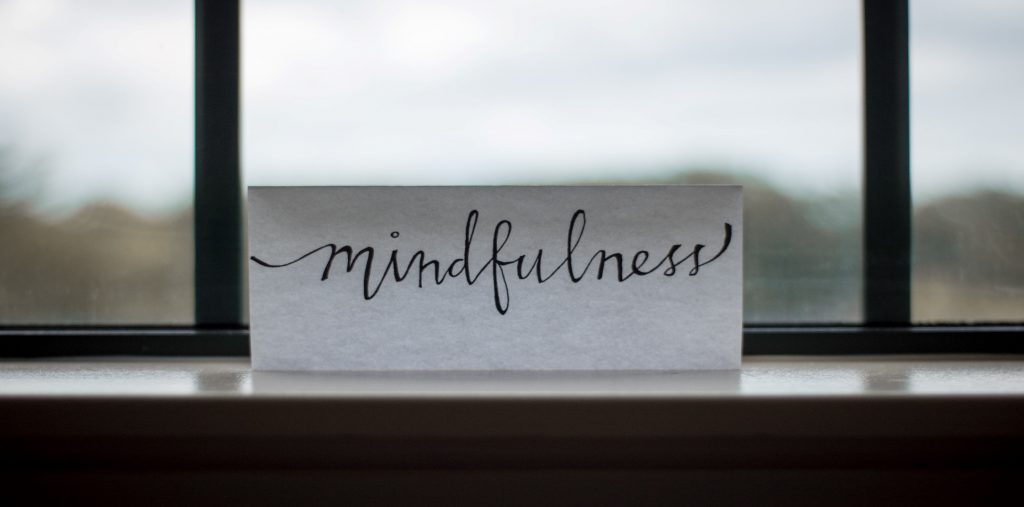
“You can’t stop the waves, but you can learn how to surf.”
-John Kabat-Zinn-
You have probably been told that embarking on a journey to become more mindful in your life will be very beneficial to you. But you may be wondering just what the benefits of being more mindful are. There are so many benefits to being more mindful in your life, a few of which are addressed below.
Mindfulness is a state of active, non-judgmental, and purposeful attention to the present moment, not focusing on the past or projecting to the future but being in the present. It involves being aware of the totality of one’s thoughts, feelings, bodily sensations, and surroundings, without becoming overly reactive or overwhelmed by them. The practice of mindfulness has roots in ancient contemplative traditions, but it has gained popularity in recent years as an approach to improving mental and physical well-being on a continuing basis.
This improvement would be reflected in every aspect of your life. You will see from the list the diversity of changes you can anticipate. On the work-front in the audit, investigation, or inspection arena all of these help you to focus on the present and invest in the process immediately before you. These changes improve confidence and credibility which we know are two of the most valuable qualities to success in interviewing and why the interviewee tells us things they have no intention of relating.
Research has shown that mindfulness can have a large range of benefits, including:
- Stress Reduction: Mindfulness can help reduce symptoms of anxiety, depression, and stress by helping individuals to regulate their emotions and develop more adaptive coping strategies. If you are like most people in this world, you live a busy life that is often full of stress. And stress has proven to be both bad for the body and the mind.
When you work on becoming more mindful in your life, this will help reduce your stress. It will also help improve other mental aspects, such as focus and efficiency, which are often impeded by the effects of stress.
We should each know the incredible negative effect that stress can have on the effectiveness of interviewing. We will encounter many more obstacles in the interview room if the interviewee perceives that stress. The interviewee’s view of confidence and credibility of the interviewer is consequently compromised. Remember what we talk about often regarding the subject of cognitive load.
- Improved focus and attention: Regular practice of mindfulness has been shown to improve attention and working memory, as well as increase the ability to filter out distractions.
It is apparent how extremely beneficial this improvement would be to the process of interviewing, active listening, critical thinking, and ensuring understanding. We need all the attention, focus, and memory we can muster.
- Enhanced well-being: Mindfulness has been linked to increased levels of positive emotions, greater life satisfaction, and improved overall well-being.
These qualities are beneficial in all areas of life, but in the interview room, the positive approach is much more beneficial, than a negative approach. Good cop/bad cop is not a real thing.
- Lowered blood pressure: Mindfulness-based interventions have been shown to help lower blood pressure in individuals with hypertension.
- Better Sleep: Mindfulness practices can help improve sleep quality by reducing racing thoughts and promoting relaxation. Do you have trouble sleeping at night?
Well, becoming more mindful can help you with that as well. Being more mindful helps reduce the number of ailments which cause problems sleeping, such as anxiety and stress. So, once you become more mindful, you’ll sleep more deeply and wake up feeling more rested.
- Improved Relationships: Mindfulness has been shown to improve communication skills, empathy, and compassion, which can enhance interpersonal relationships. It can be hard to maintain relationships in your life if you lack empathy or are prone to emotional outbursts.
Improving your mindfulness can help with both of these, as in one study performed by the California State University San Marcos, it was discovered that instruction in mindfulness both increases empathy and emotional control—meaning participants were less likely to have emotional outbursts in the future.
These improvements in empathy and compassion can be so valuable for interviewing success. Think of how useful this would be to you. The subject of improved relationships is so important, I will be addressing it next in a series of blogs.
- More Fulfillment: Mindfulness can help you feel happier and more fulfilled. This is because part of mindfulness is learning who you are and how to accept yourself and your life as it is. It will also help you set more effective goals for yourself and handle any difficult situations that may come your way confidently. This means you will be less likely to be thrown off when something in your life doesn’t go as planned, and you will be able to move forward with your life with ease.
In training, we talk about the importance of knowing who we are and being genuine when we interact with others. Anything that helps to establish that and make you more real will aid in your interviews, audits, investigations, and inspections.
Of course, these aren’t all the benefits of mindfulness, as the list goes on and on. But when you take steps to become more mindful, the benefits you will experience will transform your life in several ways, which will lead you to become a happier person who maintains excellent relationships with others. But how do we become more mindful?
Here are some things you should do to help improve mindfulness:
- Set aside dedicated time: Schedule time each day to practice mindfulness, even if it’s just a few minutes. Start your day dedicated to improving this.
- Pay attention to your breath: Focus on your breathing, notice the sensation of the air moving in and out of your body. When your mind starts to wander, gently bring your attention back to your breath.
- Practice mindful meditation: Sit comfortably and focus on your breath, noticing when your mind starts to wander. When it does, gently bring your attention back to your breath. These exercises will help with active listening, critical thinking, and ensuring understanding.
- Engage in mindful activities: Engage in any myriad of activities that require your full attention, such as yoga, walking, jogging, woodworking, or cooking.
- Practice gratitude: Take time to acknowledge and appreciate the positive things in your life. This is very important to share in the interview room as well. How often do you say thank you?
- Avoid distractions: When practicing mindfulness, try to eliminate distractions such as social media or other electronic devices. You can’t multi-task effectively or efficiently.
- Be patient: Mindfulness is a skill that takes time and practice to develop. Don’t get discouraged if you find it challenging at first. Current society has made this a challenging pursuit, and some have made it obsolete, but it isn’t. Try it!
Remember, practicing mindfulness is not about achieving a specific goal or outcome but rather about cultivating a sense of awareness and presence in your daily life. It is a continuous process to work on improvement.
Overall, practicing mindfulness can help individuals to become more aware of their thoughts and emotions, develop greater self-compassion, and cultivate a greater sense of well-being and resilience in the face of life’s challenges.
When it comes to accomplishing changes in our mindfulness and direction have you thought about whether you are handling this effectively or not? Or do you care about this enough (see a few weeks’ past blog on having passion)? Do you plan for opportunities and prepare to handle issues with your mindfulness that will or are upon you? If not, why not?
Anderson Investigative Associates is positioned to custom-tailor training to your organization’s unique needs. If you have any questions or would like to discuss the above issues of mindfulness and how to improve it or any training need, please reach out. Additional issues pertaining to interviewing, auditing, and investigations can be found in other blogs and videos that I have produced and are contained in most blocks of instruction that our company presents.
If you have additional questions, comments, or have an interviewing topic you would like me to address, give me a shout. In the meantime, be well, stay safe out there, and strive to maximize your mindfulness focus….it will improve your life across the board.
Mark A. Anderson
Director of Training and Development
Anderson Investigative Associates, llc
114 Loucks Avenue
Scottdale, PA 15683
manderson@andersoninvestigative.com
tel:912-571-6686
.
